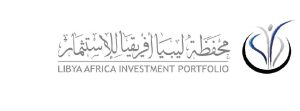By Libya Herald reporter.
Malta, 2 February 2015:
Over three years after taking over the . . .[restrict]running of the then ailing Libya African Portfolio (LAP), its new management team is finally coming out of the shadows. LAP, had largely shunned the media since September 2011 for ‘’strategic reasons’’, its General Manager Ahmed Kashadah told Libya Herald.
‘’The situation was very unstable in the early days of our takeover of the management of the investment fund. We were in a battle and in a race against time to establish control over LAP’s disparate assets scattered across the African continent and the rest of the world ’’, the General Manager explained.
He admitted that his management team were often working in the dark and in a very weak bargaining position in the early days of taking over the fund. Hampered by a lack of documentation, in the weak post-revolutionary Libyan state, he was at the time, not keen to reveal his weak bargaining position to LAP’s legal adversaries. LAP is currently in the middle of a number of ongoing court cases over a series of investments.
Asked why he had chosen to come out and speak to the media at this particular time, Kashadah said that he felt that the new management team had succeeded in stabilising, and more importantly, in establishing control over 100 per cent of LAP’s assets and recovered 80% of its original value.
A multi-billion dollar Libyan Sovereign Wealth capital investment fund, LAP was created in 2006 by the Qaddafi regime with an initial capital of US$ 5 billion. It is a subsidiary of the Libyan Investment Authority (LIA), Libya’s main Sovereign Wealth Fund.
LAP had been run by the former close Qaddafi associate, Bashir Saleh, last believed to be residing in France, having fled from his capturers in mysterious circumstances during the Libyan revolution.
During the dictatorial Qaddafi era LAP’s main aim was to gain political influence for Libya in the African continent and investment decisions were based on the personal whims and desires of the former dictator. Matters such as return on investment and risk analyses came a distant second to Qaddafi’s political and personal desires.
Today, LAP, ‘’after great and hard work’’, has totally restructured and remodeled itself to achieve what it was, on paper at least, setup to do says Kashadah. In simple terms, LAP was specifically established to provide a ‘’future generation fund’’ investing Libya’s surplus oil revenues outside the country to help diversify its income away from oil and gas’’.
It also has the added focus of investing in development which adds value to neighbouring countries across Africa. As a result today, it has investments in a number of countries in various sectors, including banking, hospitality, airlines, energy, trade, and telecommunications, he explained.
Since the 2011 revolution that overthrew the Qaddafi regime, LAP has developed new strategies to manage itself as a “professional investment portfolio with no political or personal interests”, the General Manager says.
However, in the early days of taking over LAP, the management team was akin to a ‘’search and rescue’’ team, seeking to identify and assess its assets scattered all over the huge African continent and the rest of the world.
Without a proper handover process and with the disappearance of vital documentation, establishing control and consolidating known assets, was key, Kashadah explained.
In an unstable environment and with an incomplete picture of its assets, it was vital for the management team to hold the fort and prevent the possibility of any further hemorrhaging of assets or value.
Since 2012, LAP has been striving with the help of leading international consultants such as PWC, Delliote and Booze & Co, to bring the organization’s activities in line with international standards. Developing the fundamentals and a new vision, it has focused its resources on addressing and overcoming the problems of the past, the General Manager added.
Organizationally, LAP’s Steering Committee was confronted with an organization ’’in complete disarray’’, he added.
Immediately following the liberation of Tripoli, in August 2011, LAP’s Tripoli city-centre headquarters were broken into and looted. This had led to damage and loss of assets such cars, appliances and equipment. But more importantly, Kashadah pointed out, there was also the loss and damage of vital documents.
The LAP General Manager said that his team was confronted by the fact that they did not find any completed end-of-year audited accounts for any of the years since LAP’s inception in 2006 – a startling discovery for a multi-billion dollar investment fund.
To add to the challenges of attempting to gain a hold on LAP, the Steering Committee did not benefit from a recognized handover process. It found no documents and no regulations and no financial or administrative systems. Also no documentary or reporting processes in line with the criteria typically followed by investment portfolios from which to monitor expenses and cash transactions and investments, he explained.
Equally, the structure of the LAP had been weak and not consistent with business requirements, he explained. There was also a lack of handover records between the rotating LAP management, and the new management were unable get all the minutes of the AGMs, EGMs or the meetings of LAP’s Board of Directors. They found no clear policy for hiring employees or hiring decisions, Kashadah revealed.
There was a lot that needed to be fixed at LAP, and Kashadah said the team has been quietly hard at work in a very challenging Libyan environment, trying to fix and save the multi-billion dollar investment fund.
Today, he is happy to confirm that all of LAP’s internationally audited accounts have been completed.
”The completion of LAP’s externally audited accounts by the international auditor for the periods 2006 to 2012 and with the receipt of a clean bill of health from them, without any reservations, is a major sign post in the new post 2011 revolution LAP’’ he said proudly.
”The audited accounts have been prepared for the whole LAP group as consolidated accounts for the first time in its history, and according to international accounting standards. This is a historic landmark for the future of LAP and for future management teams’’, he further enthused
Going forward, the General Manager pledged to make public in the near future documents audited by its international auditors confirming the present valuation of LAP investments at around US$ 4 billion, as well as confirming the auditing of its accounts since inception.
He also revealed some of the major achievements of the internal restructuring programme put in place since 2011. Some of these may be taken as given in other international investment funds, but have never existed in LAP since its inception by the Qaddafi regime.
One of the main pillars of the internal restructuring programme implemented by the new management team is the assurance to the Libyan public that LAP’s future investment decisions will be made on the bases of ‘‘ investment criteria and not based on political policy’’, Kashadah explained.
The investment fund has also set itself up to operate in line with international standards. For example, the LAP boss explained that the team had activated and developed the role of LAP’s internal auditing as well as compliance office as per current regulations and laws.
A Department of Treasury was established to ensure liquidity management according to investment opportunities in liquid assets. The Risk Management Department was also activated and developed – a critical department in any serious investment fund with a major role in determining the level of investment risk decisions, Kashadah explained.
Despite all these achievements, he made it clear that LAP still had a great deal more work to do as part of the responsibility placed upon it by the Libyan people to invest its oil money in diversified sectors. A responsibility made all the more pertinent by Libya’s current economic crises caused by its slump in oil production and the plummet in international crude oil prices.
With one hundred per cent of LAP’s assets now under its control, and internationally audited documentation soon to be published showing LAP has a market valuation of around US$ 4 billion, equating to 80 percent of its original value, Kashadah is pleased with the progress that LAP has made since 2011 and the solid foundation established.
A foundation, he now positively predicts, is capable of providing a strong platform for the investment fund to seriously seek to earn an alternative source of revenue for the Libyan people. [/restrict]









